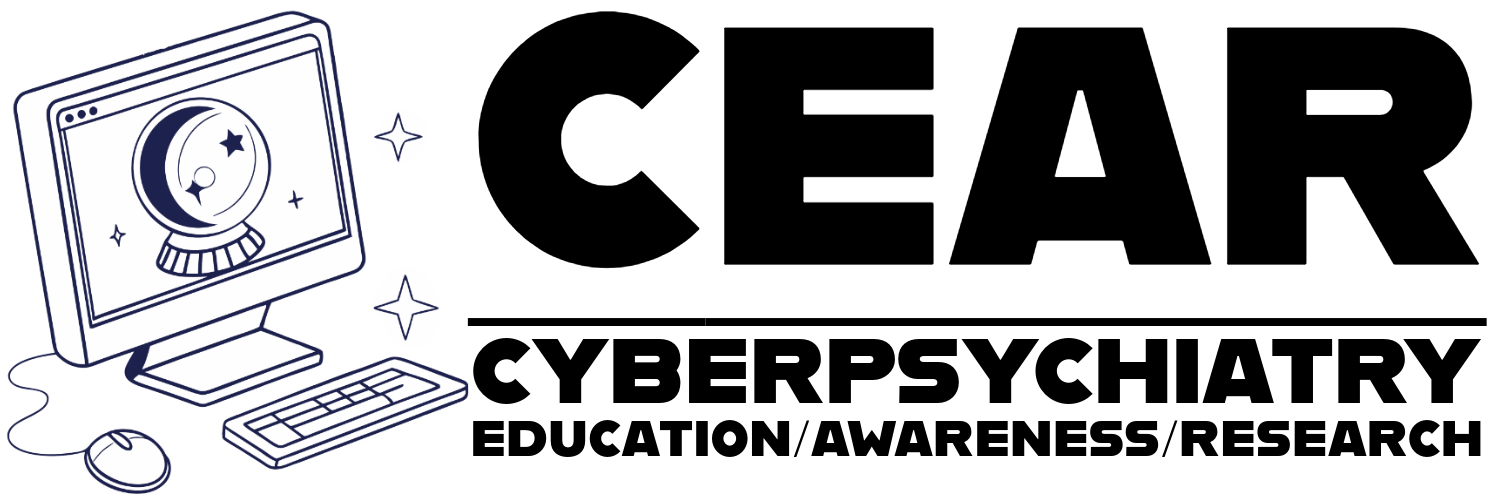
Interested in Learning More About Our Mission?
Discover how CEAR is redefining mental health for the digital age through research, education, and frontline support
Our Mission
At CEAR, we are committed to raising awareness and advancing understanding of the complex and evolving mental health challenges that arise within digital environments. As technology becomes ever more embedded in our lives—from social media to online gaming, from encrypted messaging platforms to virtual communities—so too must our models of mental health evolve to meet this new frontier. Our mission is built around three core pillars:
🌐 Recognise
We seek to recognise and name the unique psychological impacts of online interactions. This includes understanding how digital spaces can influence identity formation, emotional wellbeing, trauma exposure, addiction-like behaviours, and radicalisation pathways. Crucially, we believe that online harms should not be treated as abstract or secondary—they are real, consequential, and often overlooked within traditional psychiatric models.
📚 Educate
Through outreach, training, and public engagement, we aim to educate both professionals and the wider public about the mental health implications of our digital lives. We deliver lectures, seminars, and resources for clinicians, educators, support workers, and families—ensuring that knowledge of cyberpsychiatric phenomena becomes embedded in the everyday practice of mental healthcare and safeguarding.
🤝 Support
We are committed to supporting individuals affected by digital-age mental health issues, whether that means people impacted by online abuse, those suffering from compulsive internet use, or young people vulnerable to online extremism. Through a combination of research, clinical innovation, and direct service delivery, we will work to ensure that support systems are responsive, informed, and compassionate.
What Is Cyberpsychiatry?
Cyberpsychiatry is an emerging discipline at the intersection of psychiatry, psychology, and digital culture. It focuses on understanding how online environments shape, challenge, and sometimes compromise mental health. While cyberpsychology often examines how people behave in digital spaces—such as through social media use, gaming, or virtual identity—cyberpsychiatry goes further, interrogating the deeper clinical and pathological consequences of life online.
This includes exploring phenomena such as:
- Exposure to harmful or extremist online communities, and their effects on mood, cognition, and behaviour.
- The psychological toll of social media, including cyberbullying, comparison culture, and dopamine-driven engagement loops.
- How constant connectivity, anonymity, and digital overstimulation contribute to issues like anxiety, depression, psychosis, addiction, or dissociation.
Cyberpsychiatry seeks to not only identify and understand these challenges, but to develop relevant clinical frameworks, interventions, and support systems that reflect the digital realities of our time.
Why It Matters
In a world where screens mediate nearly every aspect of our personal, social, and professional lives, digital platforms have become significant forces in shaping mental health. These spaces are not neutral—they amplify emotion, accelerate trends, and host both support and harm in equal measure.
Recognising and responding to these dynamics is essential for:
- Developing targeted and relevant mental health interventions that speak directly to the realities of online life.
- Informing public health strategies and policies, especially around online safety, digital literacy, and youth mental health.
- Ensuring that mental health services evolve alongside technological advancement, rather than lag behind it—making care accessible, context-aware, and digitally competent.
In short, cyberpsychiatry matters because our minds are now online too—and mental health care must follow them there.
Meet Dr. Damon Parsons
Dr. Damon Parsons is a forensic psychiatrist specialising in the mental health implications of digital environments. Currently serving at Broadmoor Hospital, he also holds an honorary research fellowship. Dr. Parsons has presented on topics such as online radicalisation and digital-age mental health at esteemed institutions, including the FBI, the American Psychiatric Association, the National Crime Agency, and Imperial College London lunchtime sessions.
His publications, such as “Traumatised and on TikTok: from inside the psych ward,” explore the complexities of mental health in the context of modern technology. Dr. Parsons is dedicated to advancing the field of cyberpsychiatry through research, education, and clinical practice.
